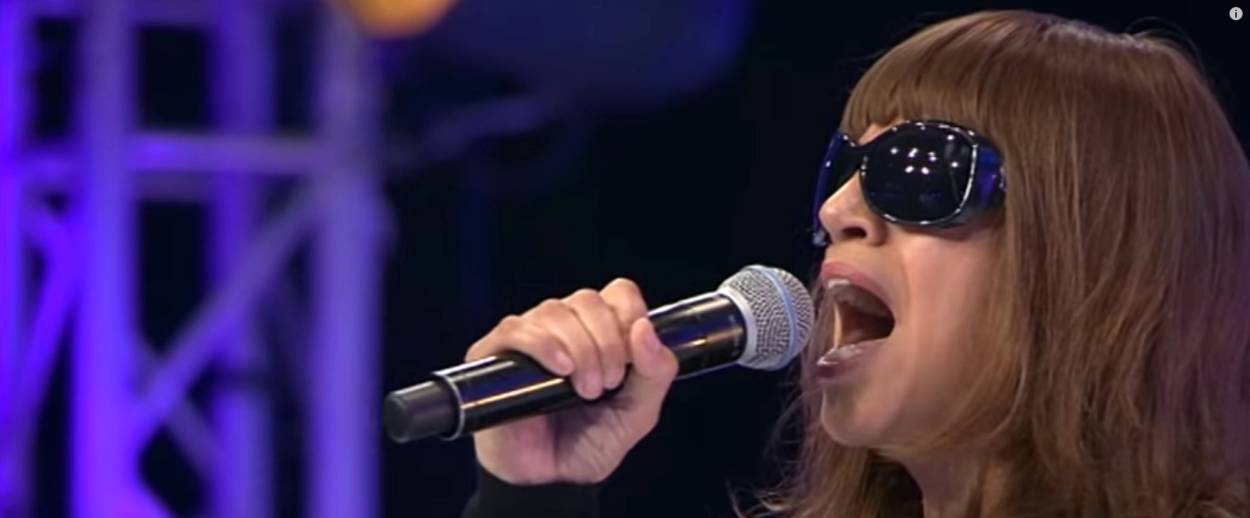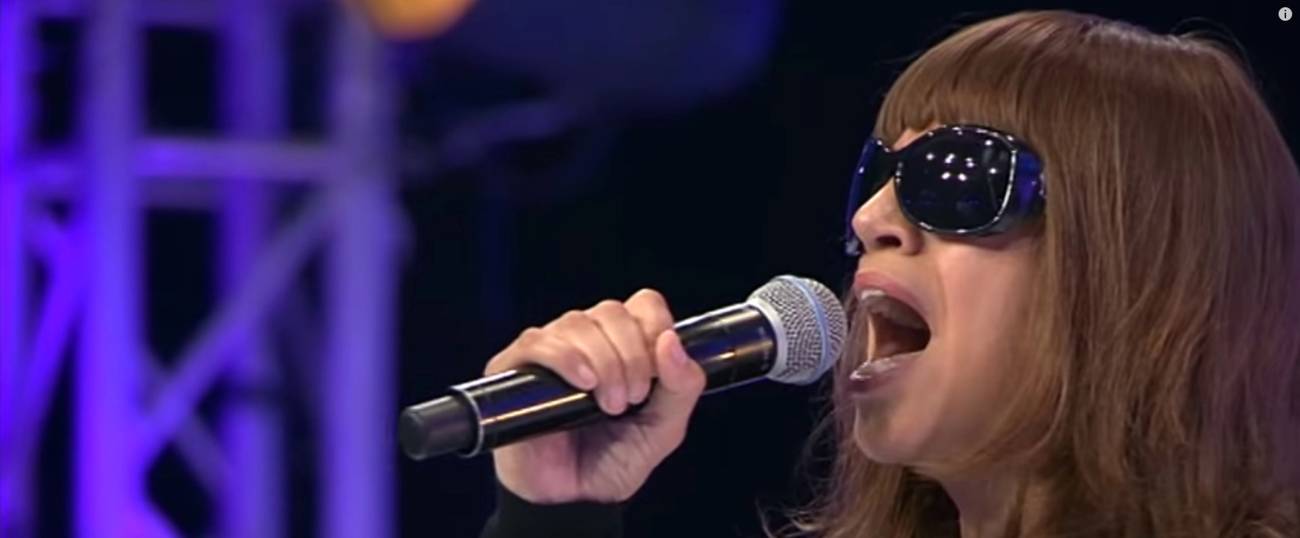Anonymous, Ultra-Orthodox Contestant Shines on Israel’s ‘X Factor’
‘I thought I was going to pass out on stage. I was crying.’




The various international versions of the TV singing talent competition, The X Factor, are more often not (at least in the early audition phase of the show) characterized by narcissistic, often deluded, wannabes envisioning themselves as the next big thing. However, in Israel’s version of the show, which began its second season on June 13, a contestant bucked the trend by concealing her identity. Dressed in a brown wig and large bug-eye sunglasses, the female singer performed a rendition of Emeli Sande’s “Read All About It” that was so powerful, celebrity judge Bar Refaeli was reduced to tears.
The contestant chose to perform anonymously because she belongs to an ultra-Orthodox community, which considers public singing to be immodest behavior for women. The singer told judges that she had dreamed of being a singer all of her life but, until now, had been too scared to do so for fear of disapproval from her family and community. Fighting back the anxiety, she decided to wear a disguise and sing in public for the first time in front of thousands of audience members, television viewers and online streamers. The judges unanimously sent her through to the next round of the show. You can watch her audition here.
In her post-audition interview (below), the ultra-Orthodox contestant told the host how nervous she was. “I thought I was going to pass out on stage,” she said. “I was crying.” But she also stressed how excited she was to finally be pursuing her dream.
This anonymous X-Factor star is the latest example of a TV talent show bringing to light the gender inequality that remains in parts of Israeli society. At the start of 2013, OfirBen Sheetrit, a young Orthodox woman, performed on The Voice only to be suspended from her high-school for two weeks. The school claimed the 17-year-old had infringed the institution’s prohibition on female singing in public, and touching members of the opposite sex, when she appeared on the program. Sheetrit’s story soon became front page news. At the time, Tablet contributor Liel Liebowitz commented that
Ben Sheetrit has become the newest focal point of one of Israeli society’s oldest and most bitter struggles, the ever-growing rift between an increasingly stringent Orthodoxy and a combative secular majority wary of religious extremism.
Shows like The X Factor, American Idol and America’s Got Talent here in the US so often make for repetitive, sugar-coated trash-viewing. So it’s refreshing to see the Israeli incarnation of The X Factor having something of a political dimension and social impact.
Previous: An Orthodox Star in Born
Jas Chana is a former intern at Tablet.